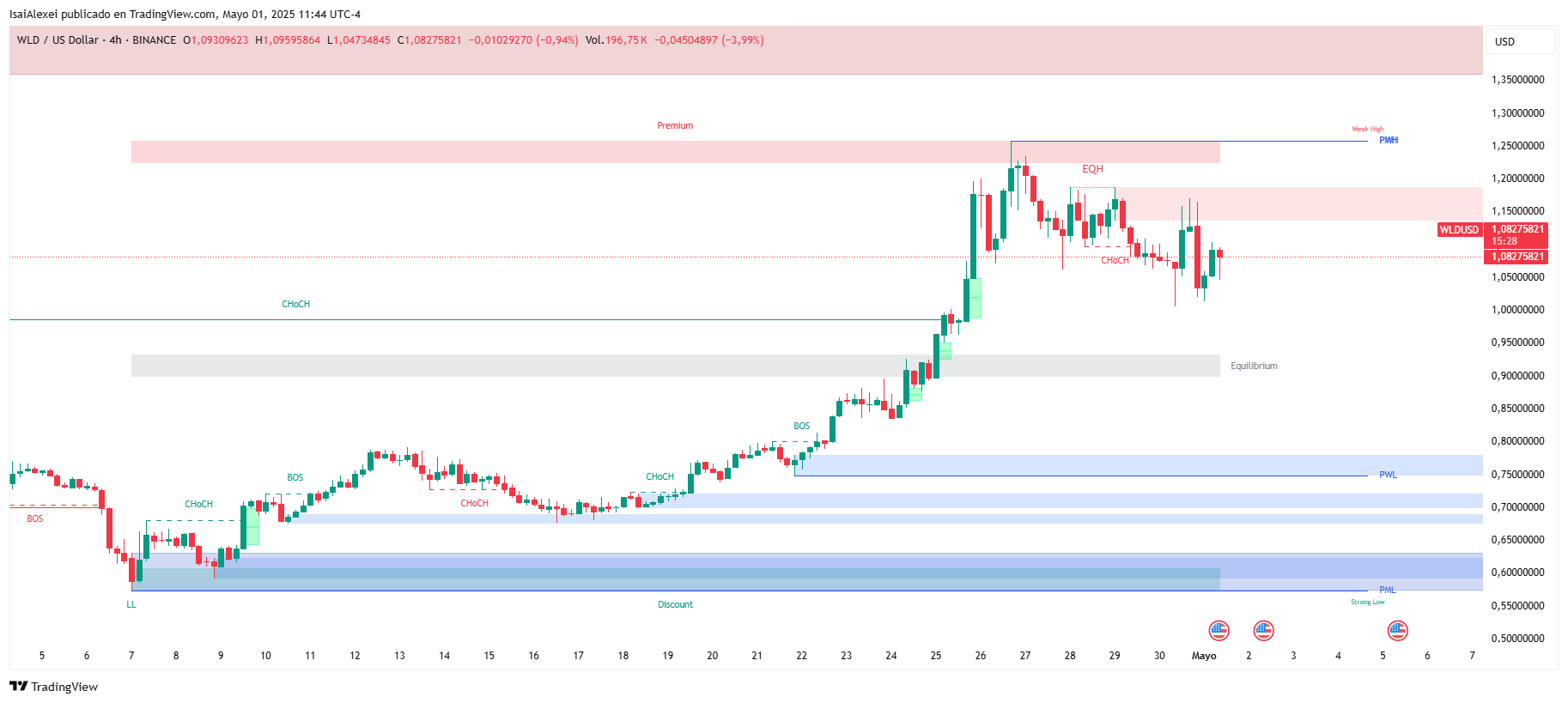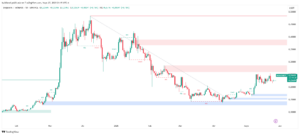
- Iris-scanning “orb” verifies users for WLD tokens, expanding to six cities amid privacy debates.
- SEC reduces crypto enforcement under Trump, enabling firms like Nexo to resume U.S. activities.
- WLD trades at $1.08, up 4% daily; adoption hurdles persist over biometric data concerns.
July 18, 2024 — Worldcoin, a cryptocurrency project co-created by OpenAI’s Sam Altman, has begun operating in the United States following changes to federal digital asset policies under former President Donald Trump.

This comes after the project avoided U.S. markets during President Joe Biden’s term, citing regulatory uncertainty. Since announcing its arrival in cities such as Miami, Atlanta, and San Francisco, Worldcoin (WLD) has jumped 111% in value, reflecting heightened attention from traders.
Under Biden-appointed regulators, U.S. agencies like the Securities and Exchange Commission (SEC) prioritized stricter oversight of cryptocurrencies, leading projects like Worldcoin to delay stateside plans.
Recent appointments under Trump have scaled back enforcement, dissolved a Justice Department unit focused on digital asset crimes, and signaled support for industry growth. This shift has allowed companies including Nexo and OKX to restart U.S. operations after earlier halting services.
Worldcoin’s U.S. launch centers on its iris-scanning technology. Users look into a device called the “orb” to confirm their identity and receive WLD tokens where legally permitted. The project, now rebranded as “World,” promotes tools for verifying human identity while protecting privacy, though its data practices have faced questions. Since 2023, roughly 12 million people worldwide have signed up.
Altman and Tools for Humanity CEO Alex Blania described Worldcoin’s goals as merging identity verification with financial access. “In regions where laws allow, people can receive WLD tokens for participating,” they stated, acknowledging lingering regulatory gray areas in the U.S. Nexo co-founder Antoni Trenchev attributed the policy changes to Trump’s team, saying the administration “supports new ideas instead of blocking them.”
Market activity aligns with the regulatory shift. WLD traded at $1.08 at the time of reporting, up 4% in 24 hours. Trading volumes have risen since April, with analysts linking the uptick to institutional buyers and large investors adjusting strategies ahead of expected policy updates.
Despite rising token values, U.S. user adoption faces challenges. Worldcoin’s reliance on iris scans—a hurdle for those wary of sharing biometric data—has slowed growth in other regions. The project now tests whether Americans will exchange personal information for tokens in an industry still recovering from past failures.
As U.S. agencies redefine their approach, Worldcoin’s expansion reflects tangible policy changes. Its ability to attract users while addressing privacy concerns will determine its trajectory.


Worldcoin (WLD) is currently trading at $1.08, down -4.20% on the day, despite a strong +25.07% gain over the past week and +40.49% over the past month. However, on a longer timeframe, WLD has experienced steep declines, dropping -42.59% over the past 6 months, -48.30% year-to-date, and -76.23% over the last year. The project still trades more than 90% below its all-time high of $11.97, though it has recovered +618% from its all-time low.

Technically, WLD recently rebounded sharply, but this latest correction suggests profit-taking after a strong rally. The token is struggling to find solid support above $1.00, and analysts note that the $1.10–$1.15 zone is a key resistance, with downside risk toward $0.95 if the current price fails to hold. The market remains cautious, with technical indicators showing neutral signals as the price consolidates.
Fundamentally, Worldcoin continues to generate buzz due to its decentralized proof-of-personhood vision, positioning itself as a key infrastructure player in the AI-human verification market. However, it faces heavy scrutiny, especially after German regulators ordered the deletion of biometric iris data—raising questions about the project’s long-term privacy stance.
The post Worldcoin Expands to U.S. as Crypto Rules Ease Under Trump appeared first on ETHNews.


